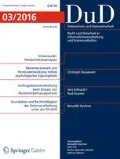Abstract
Moderne Testgeneratoren finden Schwachstellen in Eingabeschnittstellen von Programmen, indem sie in Sekunden tausende Eingaben zufällig erzeugen. Die Werkzeuge lassen sich leicht von jedermann einsetzen–zum Angriff oder zur Verteidigung.
Literatur
Barton P. Miller, Louis Fredriksen und Bryan So: An empirical study of the reliability of UNIX utilities. Communications of the ACM 33, 12 (December 1990), 32–44.
UI/Application Exerciser Monkey. https://developer.android.com/studio/ test/monkey.html, gesehen 2016-05-31.
Andreas Zeller und Ralf Hildebrandt. Simplifying and isolating failure-inducing input. IEEE Transactions on Software Engineering, 28.2 (2002), 183-200.
American Fuzzy Lop: S. K. Cha, M. Woo, D. Brumley: Program-Adaptive Mutational Fuzzing. In: Proceedings of the 36th IEEE Symposium on Security and Privacy (2015).
Shellshock (software bug). Wikipedia-Eintrag, gesehen 2016-05-31.
HeartBleed. Wikipedia-Eintrag, gesehen 2016-05-31.
Patrice Godefroid, Michael Y. Levin und David Molnar: SAGE: Whitebox fuzzing for security testing. Communications of the ACM 55, 3 (March 2012), 40-44.
Jesse Ruderman: Introducing jsfunfuzz. 2007. https://www.squarefree. com/2007/08/02/introducing-jsfunfuzz/, gesehen 2016-05-31.
Christian Holler, Kim Herzig und Andreas Zeller: Fuzzing with code fragments. In: Proceedings of the 21st USENIX conference on Security symposium (Security’12). USENIX Association (2012), Berkeley, CA, USA, 38-38.
Author information
Authors and Affiliations
Additional information
Prof. Dr.-Ing. Andreas Zeller ist Profeßsor für Softwaretechnik an der Universität des Saarlandes. Seine Forschung beschäftigt sich mit der Analyse großer Software-Systeme und ihrer Entwicklungsgeschichte. 2010 wurde er für seine Beiträge zur automatischen Fehlersuche und der Analyse von Software- Archiven zum Fellow der ACM ernannt. E-Mail: zeller@cs.uni-saarland.de
Rights and permissions
About this article
Cite this article
Zeller, A. Automatisches Sicherheitstesten. Datenschutz Datensich 40, 519–522 (2016). https://doi.org/10.1007/s11623-016-0649-z
Published:
Issue Date:
DOI: https://doi.org/10.1007/s11623-016-0649-z

